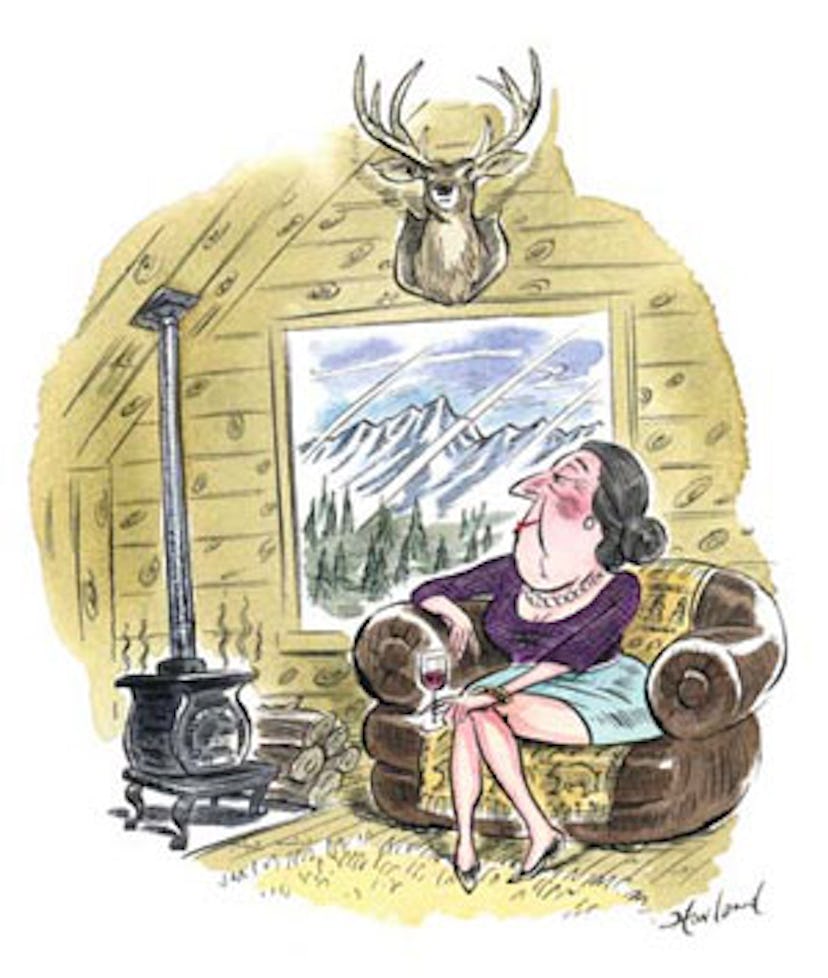Louise’s Quality Control
Luxury may have been given a bad name in this recession, but, the Countess argues, quality will never go out of style.

I love going out on a limb—as long as no one is behind me with a saw! In that spirit, I’d like to say the word “luxury” and what it stands for have become rotten apples on the tree.
After all the carnivorous consumption of the Naughts, “luxury” now has a negative connotation that indicates the over-the-top, the nouveau riche or someone with bad taste. It’s the word bandied about by the person who throws money around with big parties, magnums of champagne at clubs just to spray on people (honestly), or mega-mega-mansions. Even one of the luxury world’s kingpins, Bernard Arnault, recognizes it. “The word ‘luxury’ suggests triviality and showing off, and the time for all that has gone,” he recently told The Economist.
So forget luxury. The proper word to use today is “quality.” That’s what counts and what people should look for in everything they buy, no matter the price. I remember years ago holding a symposium where I invited a number of women to look at hundreds of sweaters—some expensive, some reasonably priced—and pick out those they liked best. In most cases they went for quality over price.
What devalued the word “luxury” was that it was slapped on everything from condominiums to toilet paper. How many times have you bought a suit or dress and actually admired the workmanship? How often have you inspected the lining of the jacket to see whether it’s sewn on correctly, or the cut of the shoulder to make sure the stripes match up? Have you turned around to look at the back of the dress to make sure it fits perfectly? You should.
Brands and retailers aren’t stressing quality enough but instead are pushing style over substance, the trendy over the timeless. They need to start changing their tune.
The difference between quality and the gimmicky fashion that has been around lately is that quality lasts—and gets better with age. It’s the pair of broken-in English brogues, the worn jeans that mold to your body, the heavy wool overcoat warm against the coldest winter blast, the leather briefcase faded and scratched to perfection. The irony is that some women have been chasing quality for the past decade—look at the boom in vintage—while brands have desperately tried to imply they’re quality with false patches, frays, rips or aging. What they haven’t realized is that you can’t fake it.
A male friend of mine recalled a conversation several years ago with the then managing director of Savile Row bespoke tailor Henry Poole & Co. He said a Scottish woman had walked into the shop not that long before and pulled her husband’s tweed suit out of a plastic bag. It was in tatters. She said her husband was very upset because the suit hadn’t worn as well as others he’d bought from the firm. “I’m sorry, madam,” the aghast executive said. “How often did he wear it?” “Every day for 10 years,” she responded. “It just didn’t last.” Ha!
But quality isn’t solely about clothes. It should be in everything and everywhere you look, from your morning cup of coffee (it doesn’t have to be Jamaica Blue Mountain) to the bread for your toast (it doesn’t have to be from Poilâne in Paris) to the bouquet of wildflowers in your room to your well-made bed and goose-down duvet.
What does all this mean? Well, the world in all aspects is in for a retrenchment. No people captured this better recently than Roger Cohen of The New York Times and British Conservative Party leader David Cameron.
Cohen, in a column titled “America’s Limits,” told of a retired Merrill Lynch executive who took his money and bought a “modest cabin with breathtaking views of the aspen and pine forests rising toward the jagged peaks of the Rockies.” A former colleague, who had remained at Merrill and raked in the big bucks, visited him there, and the two men went for a walk.
As they looked at the mountains, the cabin owner said, “The difference between us is you have everything money can buy and I have everything money can’t buy.”
Cameron, who could be the next prime minister of Great Britain, put it even more succinctly: “It’s not just about the quantity of money, but the quality of life.”